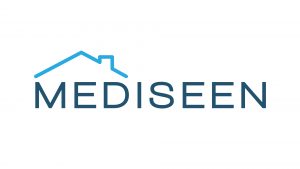The Healthtech Times is a weekly newsletter covering healthtech news from Canada and around the globe.
Subscribe to H|T using the form at the bottom of this page to ensure you don’t miss out on the most important healthtech news every week!

Toronto’s Humber River first hospital in Canada to recruit a humanoid robot(BETAKIT)
Visitors will be able to use the robot to search for their loved ones, washrooms, exits and more.
MediSeen Recommends: HealthTech is heating up in Canada (LINKEDIN)
“Technology is the key enabler of current trends in health care by empowering patients, centralizing health care data, increasing accessibility and reducing costs. We’re so excited about the tech opportunities emerging in health care that we wanted to showcase 100 HealthTech companies in Canada.”
– Michelle Killoran, Associate at OMERS Ventures
Apple is launching medical clinics to deliver the ‘world’s best health care experience’ to its employees(CNBC)
This new primary care group — a group of clinical staff that is run independently from Apple but is dedicated to Apple employees — will initially only serve Apple’s employees in Santa Clara County, where its headquarters are located.
Uber is the latest to join big tech’s race into healthcare(MASHABLE)
Uber’s launching a new business line called Uber Health, which will provide a ride-hailing platform available specifically to healthcare providers, letting clinics, hospitals, rehab centres and more easily assign rides for their patients and clients from a centralized dashboard.
Collective Health nabs $110 million in funding (TECHCRUNCH)
Collective Health, which aims to cut out health insurance and instead offer employers a way to pick and choose which things they want covered for their employees, raised the funds from GV, Founders Fund, and others.
PointClickCare raises $186 million from Dragoneer (BETAKIT)
Dragoneer invested $111 million in the company last year with JMI Equity.
Healthtech startup PharmEasy raises $30M in Series C funding from Bessemer, Orios, JM Financials (INC42)
PharmEasy caters to the chronic-care segment and offer a range of services including teleconsultation, medicine delivery, sample collection for diagnostic tests, and subscription-based services.
BrainQ aims to cure stroke and spinal cord injuries through mind-reader tech (TECHCRUNCH)
BrainQ admits it is a couple years out from being fully operational. It still needs to get through clinical human trials and gain Food and Drug Administration approval to sell its services in the U.S.
P.E.I., Ottawa sign $20M home care and mental health agreement (CBC)
The agreement will provide $20 million in federal funding over five years. The agreement covers the first five years of a $45 million, 10-year federal health funding commitment.
Big money for innovation, but questions about the strategy behind it all (MACLEANS)
The 2018 federal budget includes new funding for research, commercialization and support for exporters.


